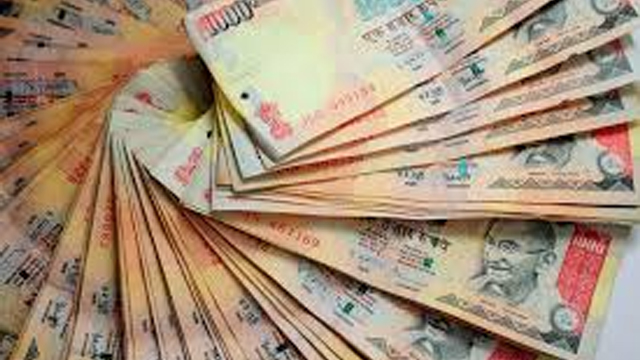The selloff in the rupee exacerbated, and the Indian currency was poised to hit the 66 mark against the greenback after hitting a day low of 65.93
As reported by NDTV, a little before noon on Tuesday, the Indian rupee edged past 65.70 against the U.S. dollar surpassing the all-time record low of 65.56 hit just last week.
Stock markets fell around 3 per cent tracking the weakness in the rupee. The BSE Sensex crashed over 500 points.
Finance Minister P Chidambaram was attempting to reassure the Rajya Sabha and facing tough questions on the rupee’s slide, when the currency fell over 2 per cent against Monday’s close of 64.30 to hit a record low of 65.71.
Markets sentiments seem to have been impacted by the Lok Sabha last night passing the $20-billion Food Security Bill. There are concerns that the Bill, which seeks to provide cheap grain to the poor, will widen India’s alarming fiscal deficit even further.
Just before he spoke in Parliament, Mr Chidambaram promised that the government would stick to its fiscal deficit target for the year. The Food Security Bill, projected to cost Rs. 1.25 lakh crore, provides cheap food to nearly 67 per cent of India and is being seen as a mega vote-getter for the Congress as it seeks a third term in power in elections due by May.
The scheme has to be cleared by the Rajya Sabha and approved by President Pranab Mukherjee before it becomes law.
“After providing for the food security bill, we will remain within the limit I have set for myself in the budget,” Mr Chidambaram told reporters at a press conference in the capital.
In the Rajya Sabha, the Finance Minister said, “Current account deficit has become a problem. We spend more dollars than we earn… What is happening in the world economy effects domestic economy. Import of gold is a challenge. We must have the courage and patience to meet every challenge as we face it.”
His comments failed to convince investors. “The Food Security Bill is the key reason for the rupee’s fall today. It would open floodgates for (credit) ratings downgrades, if the fiscal deficit is not reined in,” Ashtosh Raina, head of foreign exchange trading at HDFC Bank told Reuters.
“Every passing day, there is growing realization that the current account deficit is going to worsen when quantitative easing in the U.S. comes to an end,” he said.
Mr Irani, however, agreed with the finance minister that the Food Bill was not a big concern as of now.
“As far as the Food Bill is concerned, we knew it is coming. It’s not going to impact us in this fiscal year,” he added.
Sustained foreign selling in equities also continued to raise concerns about the gaping current account deficit. Overseas investors have sold about $810 million worth of shares in the previous seven sessions through Monday, adding to pressure on the rupee.
Meanwhile, the selloff in the rupee exacerbated, and the Indian currency was poised to hit the 66 mark against the greenback after hitting a day low of 65.93





